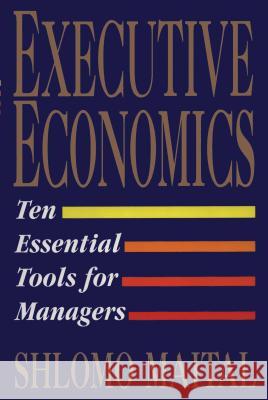Executive Economics: Ten Tools for Business Decision Makers » książka
topmenu
Executive Economics: Ten Tools for Business Decision Makers
ISBN-13: 9781451631593 / Angielski / Miękka / 2011 / 286 str.
What do economists know that business executives find useful? Economics ought to be indispensable for business decision-makers because it deals with the issues executives face daily: what to pro duce, how and how much, at what price, how best to use resources (time, labor, capital), how to understand markets. Why, then, do managers often think that economists' theories are ivory-tower and impractical? Perhaps because most economics texts are mystifying, jargon-rid den, and written from every perspective except that of the line manager.
In Executive Economics: Ten Essential Tools for Managers, Shlomo Maital brings economics down to earth, back to the hard day-to-day decisions that executives have to make. He shows how all decisions can be organized around two key questions: What is it worth? What must I give up to get it? Answering these questions depends upon finding and maintaining the right relation in the "triangle of profit" -- cost, price, and value. Each of Executive Economics ten chapters focuses on one or more legs of the triangle of profit, defines a decision tool, and illustrates how it can be used to improve the quality of executive decisions. Drawing on recent examples from both Fortune 500 firms and smaller companies, Maital shows why economics main contribution is to deepen executives' understanding of the structure of their costs, and to explain why some of a business's highest expenses are those that never appear on a check stub or in a profit-and-loss statement. Executive Economics is written for executives, about executives, and by an author who has both taught executives at MIT's Sloan School of Management for over a decade and served as a consultant to small and large businesses. It is must reading for executives who need simple, effective decision-making tools to give them an edge in today's competitive global economy.










